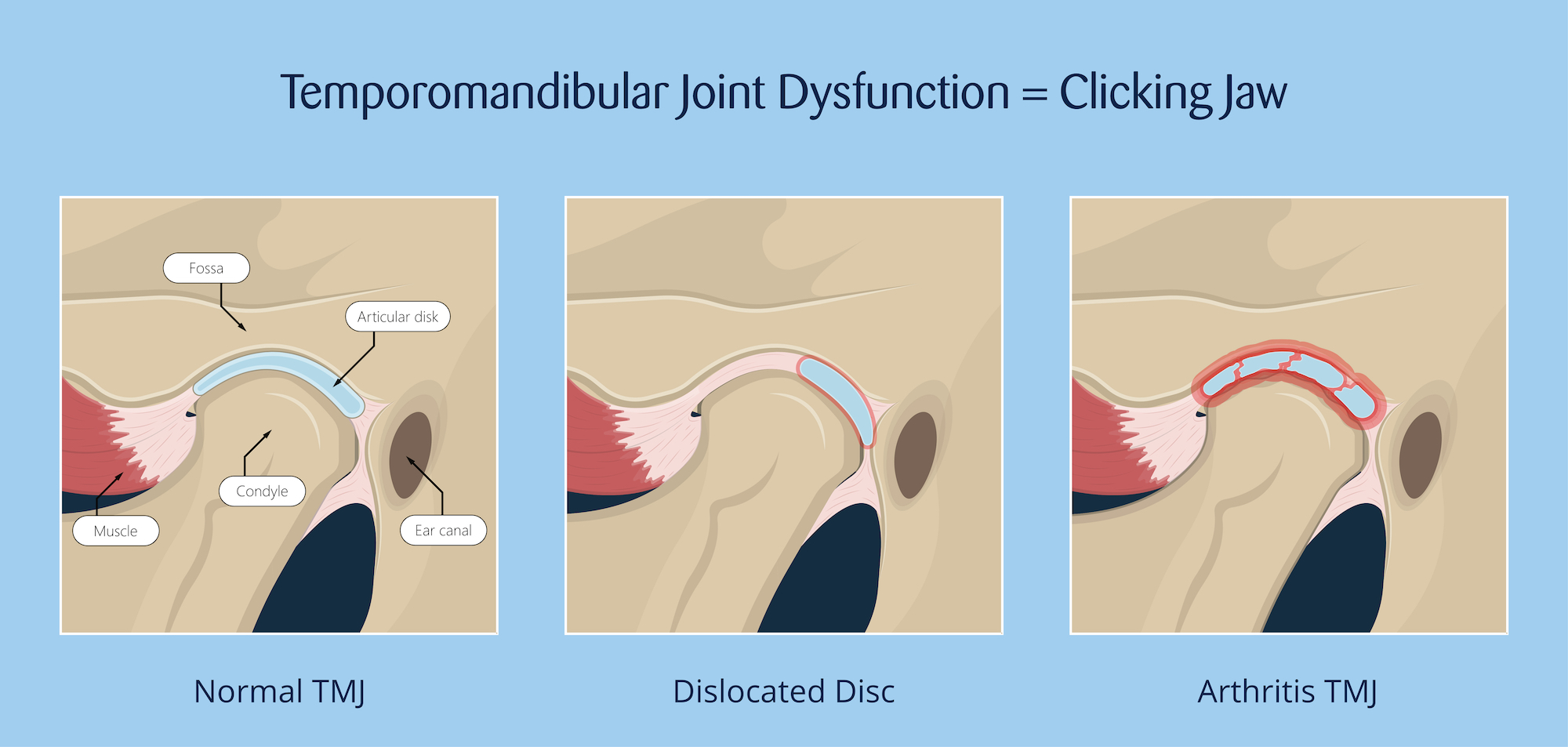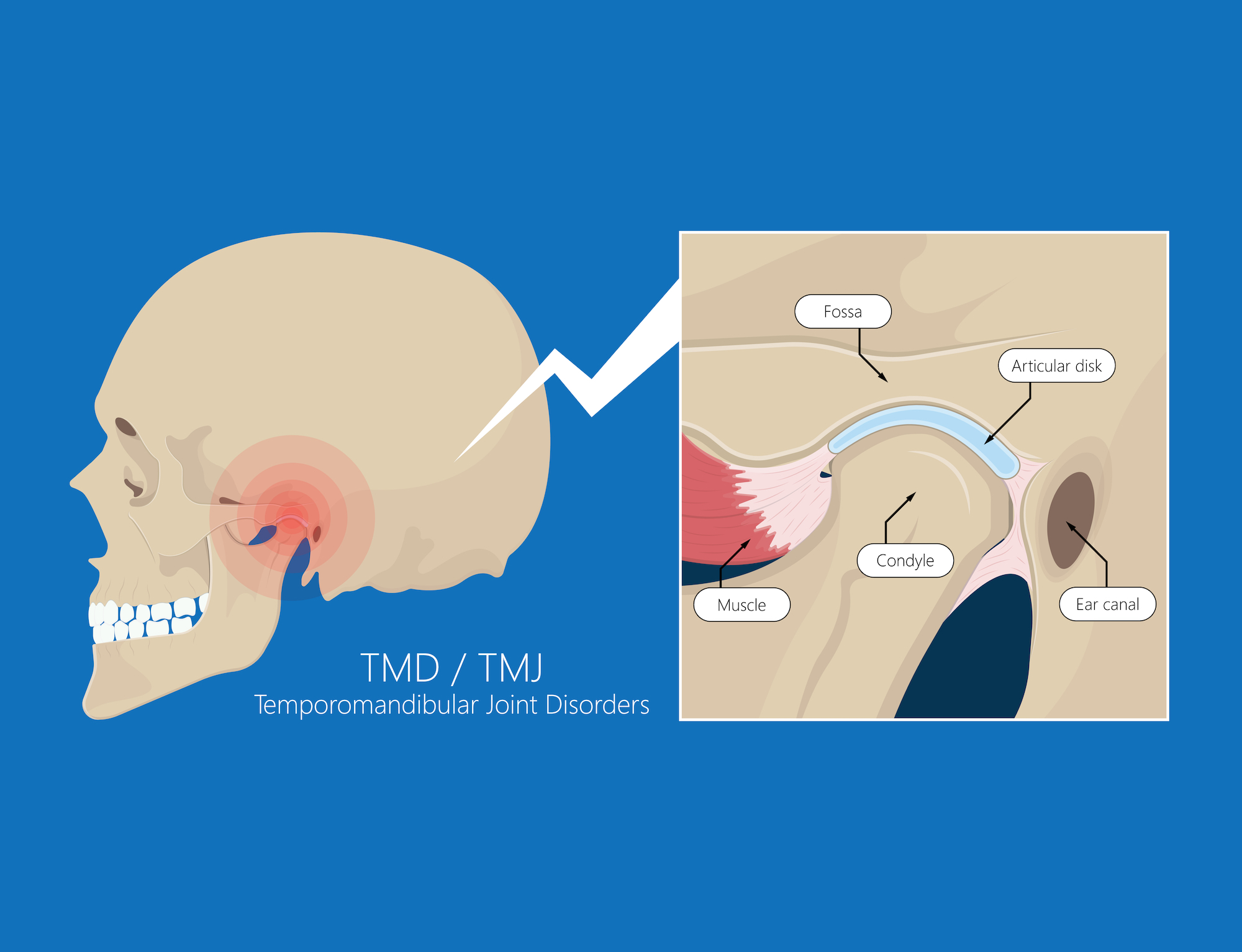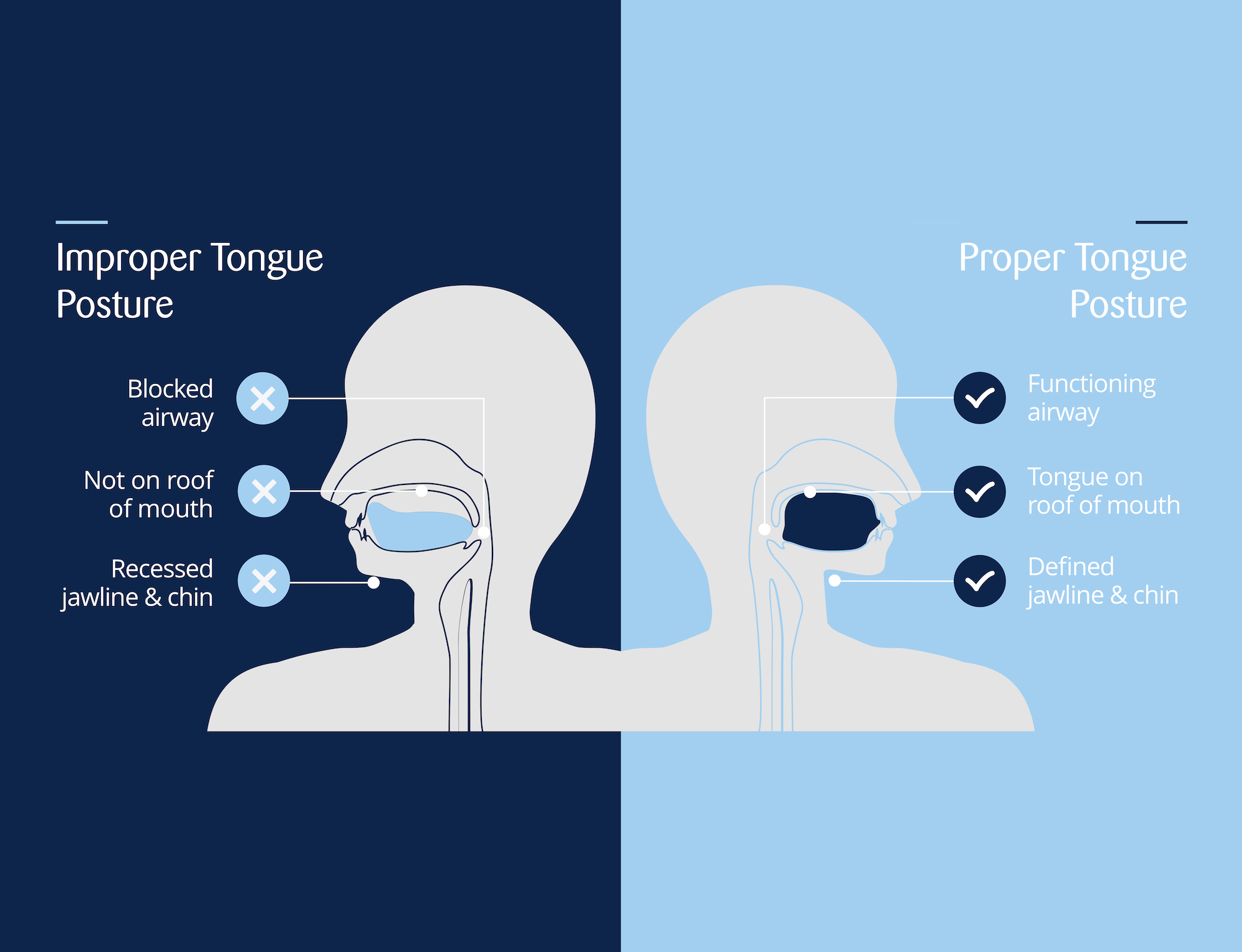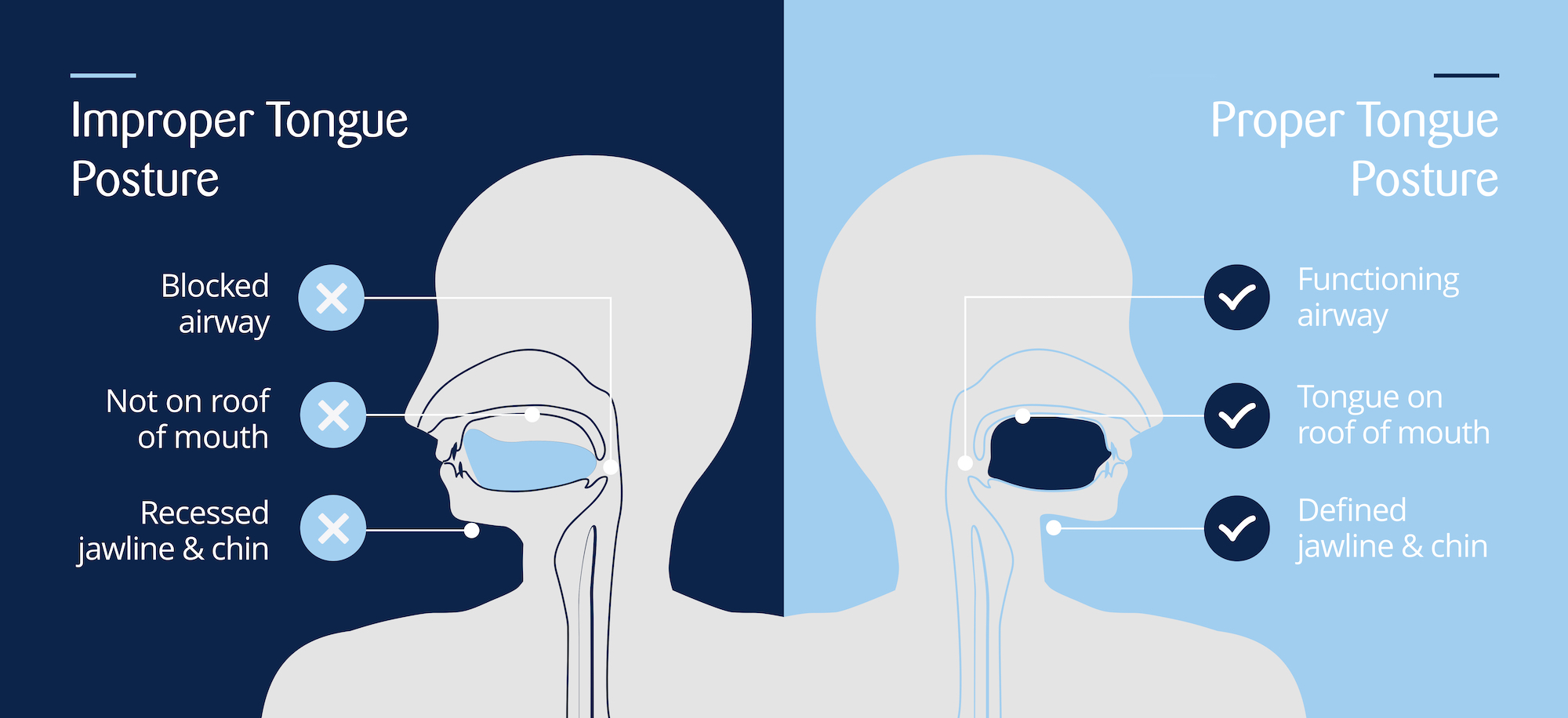Clicking Jaw: How Jaw Clicking Can Be a Sign of TMJ Dysfunction
What Does a Clicking Jaw Mean?
A clicking jaw is one of the main symptoms of TMJ
dysfunction
and is indicative of a jaw joint issue - especially when this jaw clicking is accompanied by pain. Many of those who suffer from TMJ
dysfunction will report experiencing a clicking jaw whenever they move their mouth to chew,
talk or even yawn.
Jaw Clicking is Commonly Associated With
Jaw clicking is also commonly associated with other symptoms of TMJ dysfunction like:
- Jaw pain
- Chewing difficulty
- Crepitus (when the jaw joint makes a crunching sound when moved)
- Locking of the jaw (where the jaw seizes and cannot be moved)
- Muscle spasms in the jaw
- Pain that feels like a toothache
- Pain that feels like an earache
- Headaches
- Pain in the temple region
- Head and neck pain
- Shoulder pain
- Neck and shoulder stiffness
- Referred nerve pain (commonly felt in the neck, shoulder and hip)
What Causes Jaw Clicking?
Jaw clicking usually indicates an issue with the temporomandibular
joint (TMJ), which connects the jawbone to the skull. Jaw clicking occurs when the TMJ joint or the disc that sits within the joint is in the wrong
spot.
The most common reason for this is that the lower jaw is positioned too far back in the face, which causes the disk to slip
forward.
The purpose of the disk is to allow the jaw to glide smoothly and move freely. So, when the disc is in the wrong spot, the jaw and skull
will grind up against each other - creating a grating sound, or sometimes the disc will slide back into place,
causing a loud click or pop sound.

Clicking Jaw is Caused by TMJ Dysfunction
To truly understand what causes a clicking jaw, we need to ask; what causes TMJ dysfunction? The most common cause of TMJ Dysfunction is that the lower jaw is positioned too far back in the face. As for what causes the lower jaw to be positioned too far back in the face, the answer is a low tongue posture.
How Low Tongue Posture Causes Jaw Clicking
The natural resting place of the tongue is on the roof of the mouth. When the tongue sits on the roof of the mouth, especially as a child, the jaws will tend to grow forwards. However, low tongue posture long term means that the tongue is constantly sitting off the roof of the mouth, resulting in the narrowing and collapse of the upper jaw. This occurs when the mouth is hanging open at rest, and as a result, the jaws are forced down and backwards. When the jaws are positioned too far back in the face, they become cramped against the skull, which causes the disk in the TMJ to slip forward. When this disk slips, the bones will grind against each other and it’s the slipping of the disc between the bones that results in jaw clicking.

TMJ Dysfunction: Causes, Symptoms and TMJ Treatment
TMJ dysfunction occurs where the joint/socket complex is not working correctly, which causes the temporomandibular joint to...

What is Proper Tongue Posture?
Tongue posture is a term used in orthotropics. It refers to the position of the tongue when the mouth is at rest (not talking or chewing)....
Jaw Clicking and Low Tongue Posture
Many different things may cause low tongue posture, which leads to jaw clicking. Some of the most common are:
Anything that causes people to breathe through the mouth instead of the nose
- Allergies
- Infection
- Airway blockages
- Tonsil infections
- Adenoid infections
- Obesity (putting too much pressure on the airway)
Any habit where that causes poor facial and tongue posture
- Thumb sucking
- Excessive use of a dummy or pacifier

Jaw Clicking and Crowded Teeth
Low tongue posture is also one of the leading causes of crooked teeth. The tongue is the strongest muscle in the mouth, and when it is sitting on top of the mouth, it exerts pressure on the top jaw, which forces it to widen and lengthen. A larger jaw is ideal, as this ensures there is enough space for the teeth. Conversely, when the tongue sits away from the roof of the mouth, the top jaw will narrow - causing the teeth to crowd. Thus, it is more common for those with crowded teeth to suffer from jaw clicking and TMJ dysfunction.
Clicking Jaw and Sleep Apnea
Airway issues and blockages often drive low tongue posture. Thus, it is common for people suffering from a clicking jaw to also experience other airway-related problems like snoring and sleep apnea. While it may seem strange at face value, clicking jaw and snoring or sleep apnea are closely related.
Jaw Clicking is Also Caused By
Although a low tongue posture is a common cause of jaw clicking, it can also be caused by:
- A cross bite (where the jaw is misaligned and positioned further to one side of the face than the other)
- Clenching of the teeth (due to stress/anxiety/snoring)
- Teeth grinding (due to stress/anxiety/snoring)
- Overuse of the jaw joint (due to chewing gum etc.)
How to Treat a Clicking Jaw
At Eric Davis Dental, our approach to treating a clicking jaw is to determine what is causing the jaw to click. Often, we find that a
clicking jaw and TMJ
dysfunction
are one and the same, so we will treat the patient for TMJ dysfunction to alleviate their clicking jaw. Depending on what is causing their
TMJ dysfunction, this could involve orthodontics or even engaging an ear, nose and throat specialist to assess for airway blockages and allergies. As with all of our treatments, we treat jaw clicking in a holistic
manner that considers the links between various body parts and systems.

